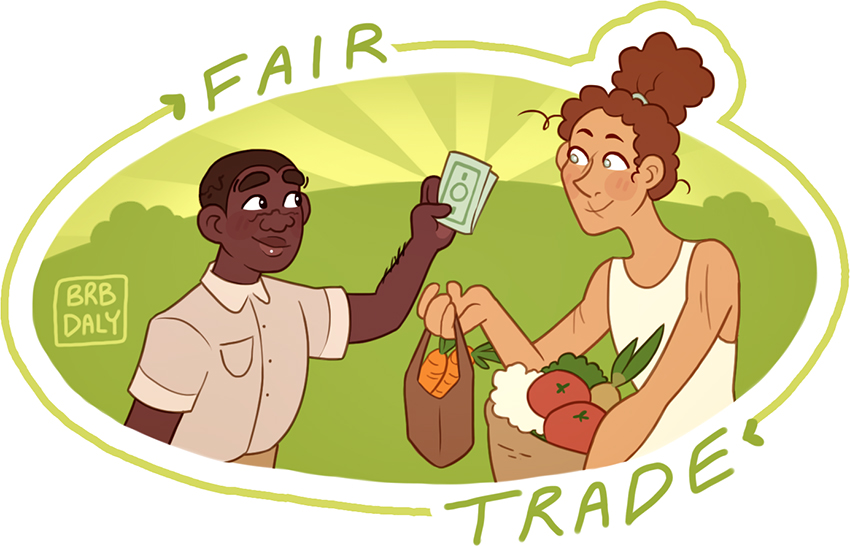Each year, workers all over the world perform backbreaking labor for unfair compensation. Although the issue may seem foreign, many everyday purchases, even those at UT, contribute to labor trafficking — the second highest form of trafficking.
To combat rapidly increasing human trafficking, some UT students and local businesses are committed to purchasing fair trade products despite the costs and challenges. Fair trade organizations aim to diminish labor trafficking by ensuring safe conditions and fair wages for workers while empowering them to enhance their communities.
Avery Leshan is a member of UT’s International Justice Mission chapter, the largest anti-slavery organization in the world, and aims to buy fair trade products whenever possible.
“A lot of people don’t realize this, but a lot of the things we purchase are made by people who aren’t paid fairly, if they’re paid at all,” said Leshan, an international relations and global studies junior.
While products such as coffee and chocolate have many fair trade alternatives, Leshan said there are few for food and technology markets.
Despite wider availability, fair trade coffee can be a costlier option. Beth Beall, co-owner of Texas Coffee Traders, said part of the price of coffee comes from ensuring workers are able to earn a living.
“Enjoy the lovely coffee,” Beall said. “But also appreciate where it comes from and what we can do to make sure these people are thriving.”
Coffee Traders began practicing fair trade with roasters in Costa Rica. For every pound of coffee sold in the U.S., a dollar is sent back. Beall said the impact comes not only from the pay, but also from programs and other resources that allow workers to thrive.
“The whole thing with fairness is, let’s be fair,” Beall said. “A huge bulk of our business is fair trade because we know it makes the difference.”
College students understand this impact, which is why Texas Coffee Traders partners with universities such as UT to offer fair trade options on campus at locations such as Robert Lee Moore Hall and the Pangea Cafe, Beall said.
Amy Lloyd, store manager of Ten Thousand Villages, a fair trade specialty shop on Burnet Road, decided using fair trade products is a small way she can contribute to solving a bigger problem.
“I can’t change the big crazy that’s out there, but I can change how I’m going to purchase something,” Lloyd said.
Some are hesitant to make this costly sacrifice if there are cheaper options elsewhere, Lloyd said. However, when she tells origin stories about the items, she said customers are often sold.
“When you look at jewelry from Cambodia where the artisans are taking bombshells left over from the war and making beautiful jewelry from it, that’s something unique you can’t get when shopping at Target,” Lloyd said.
Another hesitation comes from those who don’t think it’s a feasible change to make in their lives. However, Leshan said starting with one product, such as coffee, makes it less overwhelming and still makes a difference.
“I don’t think ease in my own life should mean slavery in someone else’s,” Leshan said.















